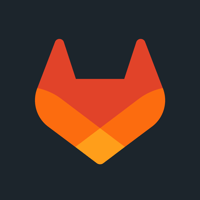Canonical is a leading provider of open source software and operating systems to the global enterprise and technology markets. Our platform, Ubuntu, is very widely used in breakthrough enterprise initiatives such as public cloud, data science, AI, engineering innovation, and IoT. Our customers include the world's leading public cloud and silicon providers, and industry leaders in many sectors. The company is a pioneer of global distributed collaboration, with 1200+ colleagues in 75+ countries and very few office-based roles. Teams meet two to four times yearly in person, in interesting locations around the world, to align on strategy and execution.
The company is founder-led, profitable, and growing.
This is a general selection track for teams that focus on back-end REST API microservices engineering in Go and Python. It covers all levels of seniority. Apply here if you are already an outstanding engineer with crisp and well-articulated views on APIs, microservice design, engineering processes and DevOps.
Our services need to scale to handle millions of Ubuntu clients, and collaboration across thousands of community members. They are also central to the health of critical infrastructure across the globe. As Ubuntu has been embraced by mainstream enterprise computing through the adoption of cloud and developer-centric tech strategy, the quality of these services has become more important to customers and users.
While Ubuntu has been enormously successful and in many senses leads the industry, we think we can substantially improve our practices, quality and performance in the web services domain. We are growing our teams, and in doing so we aim to level up our insights on scalability, performance, resilience and DevOps practices.
Key areas of interest for us are:
- API design, documentation, and governance
- Database performance design considerations and skills
- Multi-region service delivery for resilience and performance
- Fuzzing and other proactive security analysis techniques
- Tracing and profiling for distributed systems insights
- Next-generation DevOps practices
Location: we have microservices teams with open roles in every time zone.
What your day will look like- Write high-quality, well-designed, and robust software that works at scale
- Design APIs and software architecture for collegial review
- Write tests that validate software behaviour
- Build and maintain reliable, fault-tolerant applications and services
- Collaborate proactively with a globally distributed team
- Display technical leadership internally and within our external communities
- Debug issues and produce high-quality solutions to resolve them
- Contribute to technical documentation to make it the best of its kind
- Discuss, contribute to, and collaborate across teams at Canonical
- Work from home with global travel twice annually for company events
- An exceptional academic track record from both high school and university
- Undergraduate degree in Computer Science or STEM, or a compelling narrative about your alternative path
- Drive and a track record of going above-and-beyond expectations
- Proficiency in Python and / or Go
- History of writing modern, maintainable software
- Experience with relational and non-relational database systems
- Continuous integration and continuous delivery experience
- Experience with systems programming or scalable web services
- Professional written and spoken English
- Experience with Linux (Debian or Ubuntu preferred)
- Excellent interpersonal skills, curiosity, flexibility, and accountability
- Passion, thoughtfulness, and self-motivation
- Excellent communication and presentation skills
- Result-oriented, with a personal drive to meet commitments
- Ability to travel twice a year, for company events up to two weeks each
- Experience with container tech such as LXD, Docker, and Kubernetes
- Understanding of build systems and toolchains
- Experience with cross-compilation
- Experience with hyperscale public clouds and / or private clouds
- Experience with designing, building, and running distributed systems
- Performance engineering and security experience
We consider geographical location, experience, and performance in shaping compensation worldwide. We revisit compensation annually (and more often for graduates and associates) to ensure we recognise outstanding performance. In addition to base pay, we offer a performance-driven annual bonus. We provide all team members with additional benefits, which reflect our values and ideals. We balance our programs to meet local needs and ensure fairness globally.
- Distributed work environment with twice-yearly team sprints in person
- Personal learning and development budget of USD 2,000 per year
- Annual compensation review
- Recognition rewards
- Annual holiday leave
- Maternity and paternity leave
- Employee Assistance Programme
- Opportunity to travel to new locations to meet colleagues
- Priority Pass, and travel upgrades for long haul company events
Canonical is a pioneering tech firm at the forefront of the global move to open source. As the company that publishes Ubuntu, one of the most important open-source projects and the platform for AI, IoT, and the cloud, we are changing the world of software. We recruit on a global basis and set a very high standard for people joining the company. We expect excellence; in order to succeed, we need to be the best at what we do. Most colleagues at Canonical have worked from home since our inception in 2004. Working here is a step into the future and will challenge you to think differently, work smarter, learn new skills, and raise your game.
Canonical is an equal opportunity employerWe are proud to foster a workplace free from discrimination. Diversity of experience, perspectives, and background create a better work environment and better products. Whatever your identity, we will give your application fair consideration.
#LI-remote



